Remembered! When nobody but Liverpool won the League Cup
Rich Edwards recalls a time when success in the competition was a matter of course for the Merseysiders
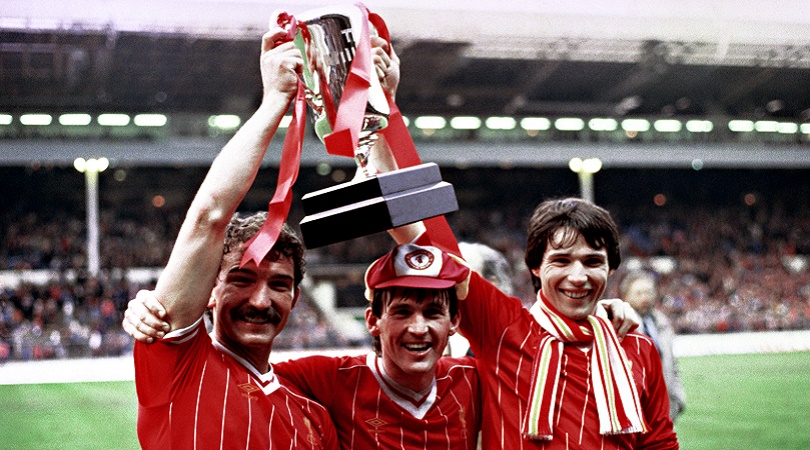
Trivial Pursuit may have been Britain’s best-selling board game in 1984, but when it came to the League Cup in the same year, Liverpool were busy creating a monopoly.
It took a Maine Road replay for them to squeeze past Merseyside rivals Everton at the second time of asking, but after winning the Milk Cup for the third time in a row (and the competition itself for a fourth year in succession), it was ruled that the trophy could stay at Anfield for ever more.
In truth, such was Liverpool’s overwhelming dominance that the Football League and Dairy Council must have been tempted to scrap the tournament altogether. The Reds scooped a prize of £64,000 for that win over Everton, but the burning question was who on earth was ever going to beat them in a competition they hadn’t lost a tie in since February 1980.
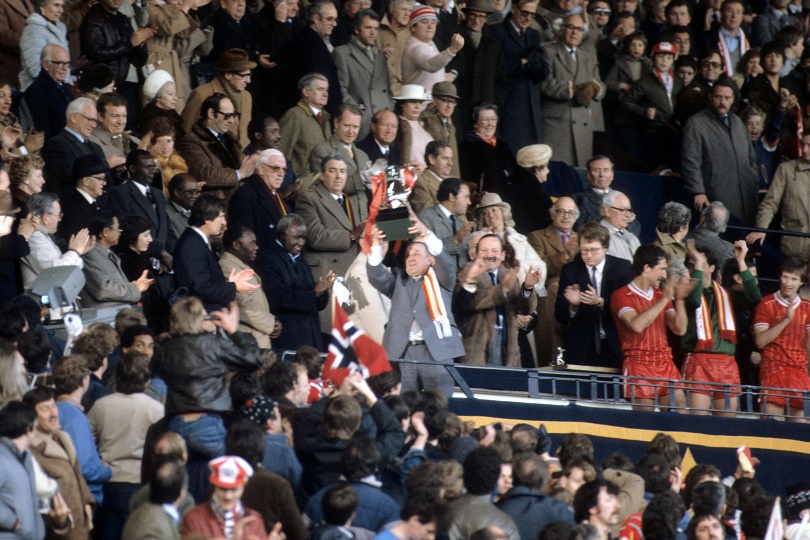
Red reign
At the turn of a decade they would dominate from almost start to finish, it was Brian Clough’s Nottingham Forest who knocked Liverpool out 2-1 on aggregate at the semi-final stage.
Suitably chastened, Bob Paisley would never taste defeat in the tournament again, leading Liverpool to victory in 1981, ‘82 and ‘83
Suitably chastened, Bob Paisley would never taste defeat in the tournament again, leading Liverpool to victory in 1981, ‘82 and ‘83 before passing the baton to Joe Fagan, who seamlessly piloted the Reds to further glory the following year.
It remains the single greatest run of tournament wins in English football history, and is all more remarkable for the fact that, for three of those four seasons, Liverpool were also crowned First Division champions.
Get FourFourTwo Newsletter
The best features, fun and footballing quizzes, straight to your inbox every week.
Strangely enough, the League Cup had been perhaps the most open of all competitions before Liverpool’s reign began, with 14 different clubs winning the tournament in the 20 years since its creation in 1960. Even Rochdale and Rotherham had managed to reach the final.
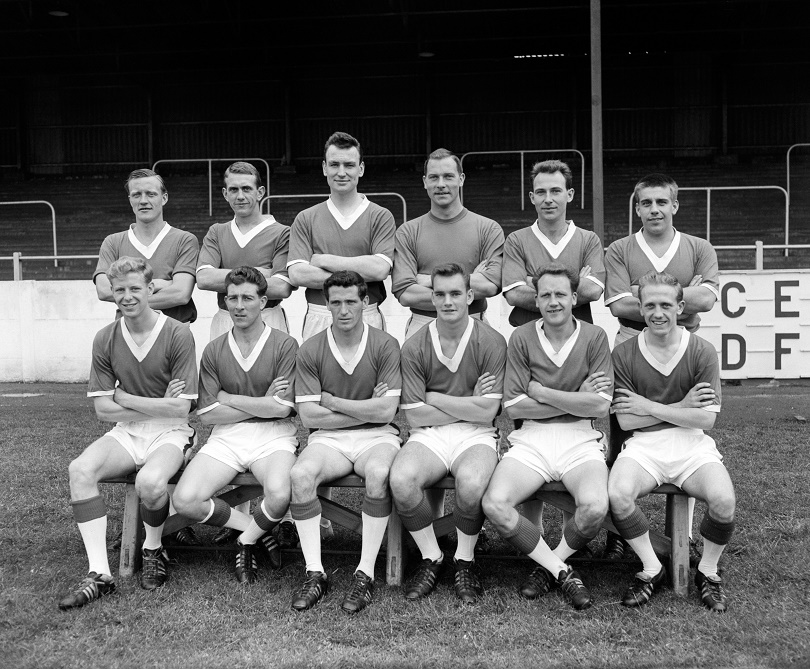
Off the mark
Paisley’s red machine soon put a stop to all that nonsense, though; West Ham were their first victims, again after a replay following a 1-1 draw in the initial match at Wembley.
When Alan Kennedy put Liverpool 1-0 up with just two minutes of extra time remaining in that first game, the victory conga in the Liverpool end looked neither ill-judged nor overly presumptuous. In the end, it was both as a late West Ham penalty – in a bad-tempered finale – ensured parity.
When Alan Kennedy put Liverpool 1-0 up with just two minutes of extra time remaining in that first game, the victory conga in the Liverpool end looked neither ill-judged nor overly presumptuous
The usually phlegmatic West Ham boss, John Lyall, was so incensed by the officiating that he had his name taken by referee Clive Thomas at the final whistle after labelling him a cheat.
“Take the emotion out of football and you haven’t got a game,” Lyall said in contrite tones in his post-match press conference.
A pulsating replay at Villa Park ended 2-1 in Liverpool’s favour, largely thanks to the majesty of Kenny Dalglish and a telling contribution from a young Welsh striker by the name of Ian Rush.
Taking it seriously
That signalled the start of Liverpool’s remarkable run. David Fairclough, who had played in the first leg of the semi-final against Manchester City in 1981 before missing the final through injury, tells FFT that the reasons for the club’s success in the competition were straightforward.
From our point of view we wanted to win everything - that was what Liverpool were all about. There was never any question of Bob Paisley resting anyone from a League Cup tie and saving them for the league or for Europe
“Liverpool’s approach was maybe a little bit more professional than others,” he says. “At one time it had the nickname of being the ‘Micky Mouse Cup’ and I think that symbolised the perception that some teams had of it. The FA Cup was really the major cup domestically, and I think a lot of clubs let the opportunity go begging when it came to the League Cup.”
In contrast to the approach taken by Jurgen Klopp and a succession of other Liverpool managers since - not just in the League Cup but in the FA Cup too - the teams put out by Paisley and then Fagan illustrated the club’s insatiable appetite for trophies.
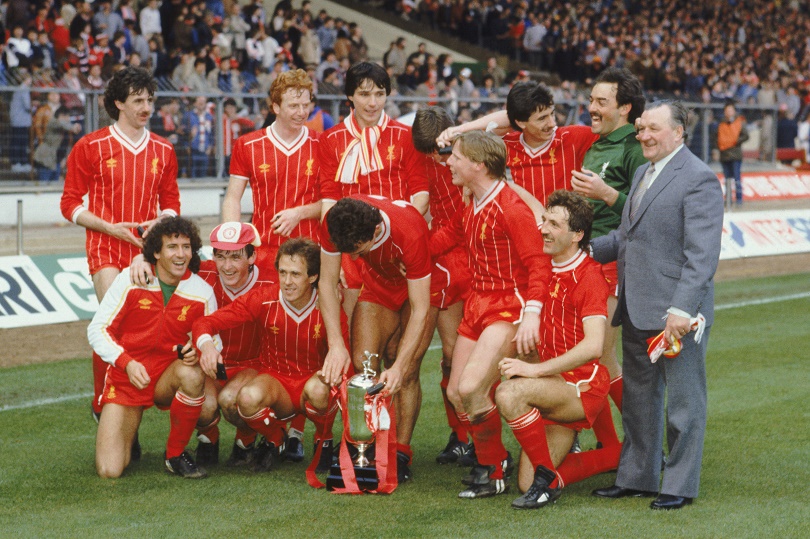
“From our point of view we wanted to win everything - that was what Liverpool were all about,” Fairclough said. “There was never any question of Bob Paisley resting anyone from a League Cup tie and saving them for the league or for Europe.”
The run continues
When Spurs took the lead through Steve Archibald, it looked as though Liverpool’s League Cup luck was about to run dry
League Cup number two came the following year, when Liverpool again didn’t make life easy for themselves. Requiring a replay to get past Barnsley in the quarter-finals, Paisley’s side were left grappling with a lengthy injury list as their Wembley date approached.
“It was a bit of a drama – really just a case of whoever was fit was going to get a game,” explained Fairclough, who was one of those on the sidelines following a serious knee injury.
When Spurs took the lead through Steve Archibald, it looked as though Liverpool’s League Cup luck was about to run dry – particularly as Keith Burkinshaw’s side hadn't yet conceded a single goal in that year’s competition.
That record, though, was ended by an equaliser from Ronnie Whelan. As the game went into an extra half hour, another goal from the Irishman and a further strike from Rush sealed victory and Paisley's 16th title in eight years.
“The ruling monarchs in the end refused to be usurped,” wrote Stuart Jones in The Times. “Liverpool, the red giants who have bestrode the land for more than a decade, extended their empire on Saturday by suppressing the fresh, golden talent of Tottenham to retain the League Cup, sponsored by the National Dairy Council, at Wembley.”
Milking it
That deal with the National Dairy Council was the biggest in British sport at the time. It was signed just 12 days before the final, amid considerable opposition from those who believed sponsorship had no place in football, and greeted gleefully by league secretary Graham Kelly. “The sponsorship of the League Cup shows we can interest industry in our product,” he said.
Unsurprisingly, it was Liverpool who were creaming the opposition again the following March, this time beating Manchester United - once more in extra time - to seal a hat-trick of titles.
“I think I was warming up for the entire second half,” says Fairclough, who eventually got on the pitch to claim a winner’s medal with seven minutes of time remaining. “I should have scored twice too; one miss still haunts me.”
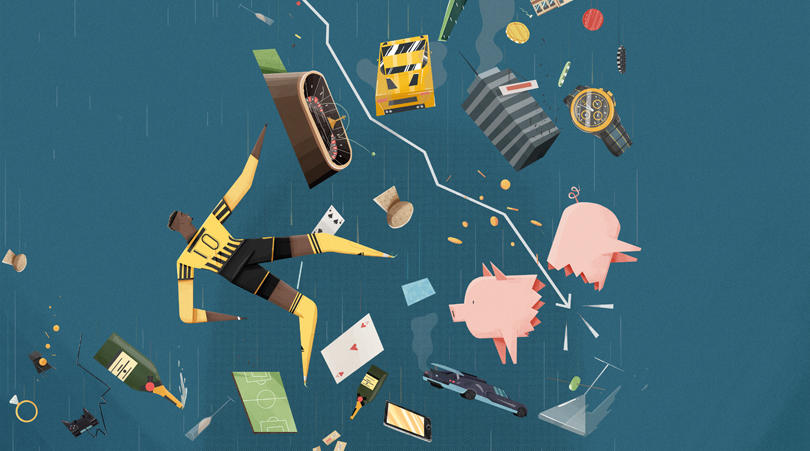
Why do so many footballers end up broke? FourFourTwo investigates...
In the end it didn’t matter: with Alan Kennedy having equalised Norman Whiteside’s opener, Fairclough provided Liverpool with the additional impetus they needed to see off their great rivals. It was Whelan who again delivered the coup de grace, netting the winner in the 98th minute.
Their victory over Everton 12 months later ensured a place in history, but there was little partying to be done by the players. “At Liverpool you were always focused on what was next,” says Fairclough. “You would puff your cheeks out and say ‘well, that’s that one out of the way’."
This year's crop have a bit of work to do for that yet.
